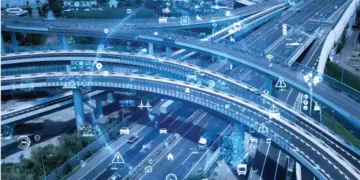After the UN Conference on Sustainable Development (Rio+20) in 2012 and the subsequent 2015 summit, the UN adopted 17 Sustainable Development Goals to be accomplished by 2030. Among them, SDG4 aims to ensure equitable and quality education and promote lifelong learning opportunities for all. The goal is divided into many targets, out of which targets 4.3 to 4.5, and 4.7 specifically stress upon the access to quality technical education, skill development, vocational training for employment, decent jobs, and entrepreneurship for all groups, including the vulnerable.
India, aligned its latest education policy with SDG4, and accordingly, NEP 2020 envisages, “A holistic and multidisciplinary education would aim to develop all capacities of human beings -intellectual, aesthetic, social, physical, emotional, and moral in an integrated manner. Such an education will help develop well-rounded individuals that possess critical 21st century capacities in fields across the arts, humanities, languages, sciences, social sciences, and professional, technical, and vocational fields; an ethic of social engagement; soft skills, such as communication, discussion and debate; and rigorous specialization in a chosen field or fields…. as part of a holistic education, students at all HEIs will be provided with opportunities for internships with local industry, businesses, artists, crafts persons, etc., as well as research internships with faculty and researchers at their own or other HEIs/research institutions, so that students may actively engage with the practical side of their learning and, as a by-product, further improve their employability”.
National Policy on Education 2020, while laying foundations for the vocational and skill based education says, “The 12th Five-Year Plan (2012–2017) estimated that only a very small percentage of the Indian workforce in the age group of 19–24 (less than 5%) received formal vocational education, whereas in countries such as the USA, the number is 52%, in Germany 75%, and South Korea it is as high as 96%. These numbers only underline the urgency of the need to hasten the spread of vocational education in India.” The policy prescribes that, “The development of vocational capacities will go hand-in-hand with the development of ‘academic’ or other capacities. Vocational education will be integrated into the educational offerings of all secondary schools in a phased manner over the next decade. Towards this, secondary schools will also collaborate with ITIs, polytechnics, local industry, etc. Skill labs will be set up and created in the schools in a hub and spoke model, which will allow other schools to use the facility.
Higher education institutions will offer vocational education either on their own or in partnership with industry and NGOs. Focus areas for vocational education will be chosen based on skills gap analysis and mapping of local opportunities.” Thus, NEP 2020 integrates vocational training from an early age, emphasises skill development for industry relevance, and champions a holistic approach to education, including creativity, critical thinking, and multidisciplinary learning. This policy supports SDG 4 by expanding access to quality education, ensuring that a significant proportion of youth and adults gain relevant skills for the modern economy.
The aforesaid paragraphs bear witness that the global as well as Indian education policies are premised, not upon the equitable quality education alone, but also focus on the acquisition of twenty-first century skills, both soft and hard, and learning, de-learning, and re-learning to achieve a decent livelihood. Mastering the skills in ICT, communication, and collaboration will ensure that the youth, on their own, are capable enough to sustain in the future job markets.
The AI, Robotics, and modern warfare have mounted immense challenges in front of the coming generations; therefore, to stay relevant in the job economy, honing skills shall be pivotal in getting decent livelihood opportunities. By integrating AI, robotics, and relevant technologies, critical thinking and creativity shall be the guiding forces for the youth to set up entrepreneurial journeys. The successful youth in future will be those who keep on learning, de-learning, and re-learning throughout their lives, acquire vocational training, upgrade their skills to match the modern demands, and enhance their adaptability.


